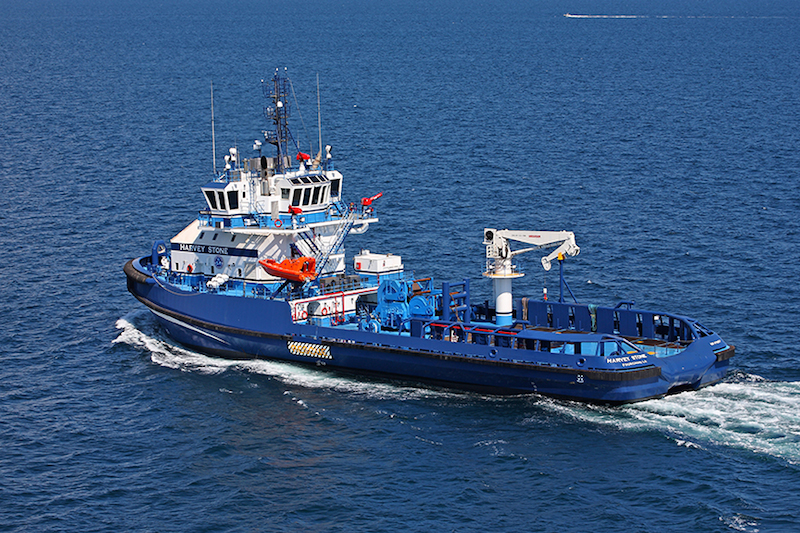In a sharp reversal for U.S. offshore service companies, U.S. Customs and Border Protection withdrew its proposed changes to Jones Act rules that would have closed the door to foreign-flag operators in the Gulf of Mexico.
The decision is a setback for U.S.-flag operators, shipbuilders and allies who had high hopes the Trump administration’s “buy American, hire American” mantra would preserve one of the last policy moves under the outgoing Obama administration. Those advocates contended that stricter enforcement of cabotage rules related to offshore oil and gas work would create 3,200 new jobs and $700 million in economic activity on the Gulf coast.
The Offshore Marine Service Association, a staunch advocate for the proposed reforms, fired back, contending that the White House Office of Management and Budget was “obliging to foreign interests” by recommending “a regulatory review process that will significantly delay the lawful and correct enforcement of the Jones Act.”
In a notice issued May 10, Glen Vereb, director of border security and trade compliance for the CBP, announced the agency is withdrawing proposed actions that would have revoked Jones Act rulings on non-U.S. flag operators transporting oil field equipment.
The agency’s Jan. 18 announcement of that intention spurred intense lobbying from international operators and oil companies to keep the status quo. On the other side, U.S. operators — who had been in frequent talks with CBP for years, urging reconsideration of old rulings — pressed for final approval of the measures.
The ensuing debate led CBP to extend public comment on the proposal beyond 60 days, to April 18. In his statement Vereb noted that more than 3,000 comments poured into the agency.
“Based on the many substantive comments CBP received, both supporting and opposing the proposed action, and CBP’s further research on the issue, we conclude that the agency’s notice of proposed modification and revocation of the various ruling letters relating to the Jones Act should be reconsidered,” Vereb stated.
The retreat is a victory for the international operators and their oil industry supporters like the American Petroleum Institute, which contended that a new CBP policy would lock out foreign-flag operators and equipment to the detriment of the overall Gulf of Mexico industry.
“Withdrawing the proposed changes protects U.S. energy security and allows for consumers and businesses to continue benefitting from America’s energy renaissance,” said API Upstream Director Erik Milito. “By rescinding the proposal, CBP has decided not to impose potentially serious limitations to the industry’s ability to safely, effectively, and economically operate.”
“The proposals, which would have represented a major change in maritime policy if enacted, had been forecast to result in a substantial GDP loss coupled with significant American job losses along the entire U.S. Gulf coast,” said Allen Leatt, CEO of the International Marine Contractors Association.
OMSA and its allies made a direct appeal to the Trump administration to reconsider the decision. Among other arguments, they contend 31 new and refitted vessels in the U.S.-flag offshore series fleet are more than sufficient to handle work in the Gulf when the industry turns around.
Harvey Gulf Marine International, Hornbeck Offshore and other major players have invested in multipurpose offshore service vessels, a bet that those MPSVs will be in highest demand going forward.
"This decision to move to a regulatory review process is deeply damaging to the American crews, shipyards, and companies who have waited more than eight years while the (Obama) administration studied taking corrective action,” said OMSA president Aaron Smith. “Additionally, during this time our industry has invested more than $2 billion to ensure offshore production and exploration would not be disrupted, while foreign interests lobbied the U.S. government to promote their own economic interests through their promotion of false statements and scare tactics.”
The convoluted history of CBP Jones Act rulings in the oil patch date to 1976 with offshore construction vessel operations, and the question of whether well, pipe-laying and other equipment counted as cargo under the Jones Act or as exempted “vessel equipment.”
The so-called “Christmas tree case” of 2009, when the CBP determined that a subsea valve assembly qualified as vessel equipment enroute to its installation, inspired U.S. operators to actively push for an overall review of the policies.
Some critics of the CBP’s move to revisit those rulings put a political spin on it, casting it as another last-minute move by the outgoing Obama administration. But supporters in the industry — who had many problems of their own with Obama-era energy policies — stressed how discussions had been ongoing for years with the agency.
“Since 2009, CBP has attempted to revoke or modify these letter rulings in question, which were issued in an opaque and private manner between the requesting party and CBP,” according to OMSA. “Moving to a regulatory review process will provide foreign interests substantially more ‘due process’ than American mariners, shipyards and companies received.”




